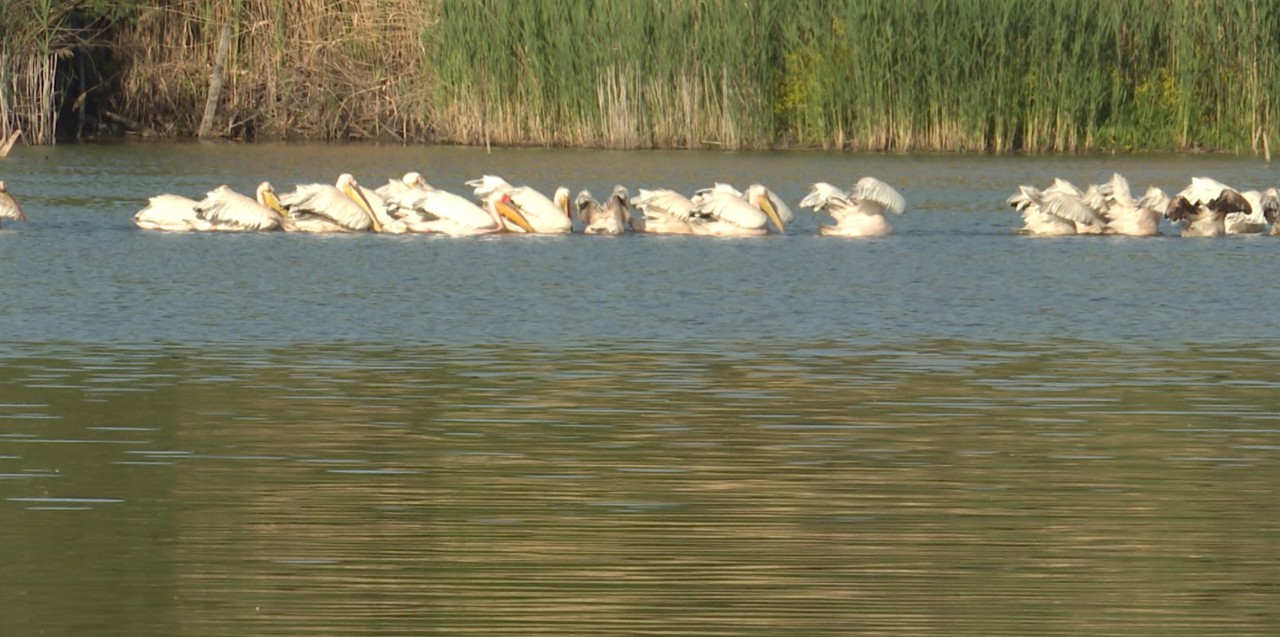Pelicans vs. Fish Farms: Moldova Seeks Balance
Thousands of pelicans have descended upon the lakes in the Ialoveni district.

For the past few weeks, these birds have been a delight for visitors, creating an unforgettable scene on the lake's surface. However, their presence poses a significant challenge for local fish farmers.
The problem is that pelicans devour the fish raised by the lake managers. The fish farmers are forced to frighten them off day and night with special fireworks or chase them away by boat. Yet, the birds return relentlessly.
On the other hand, representatives of the Ministry of the Environment say they lack a regulatory mechanism to address this issue. The pelican population in the country is definitely on the rise during the months of May and June. These Red-Listed birds are protected by the state.
Sergiu Coval has been leasing the lake in the village of Nimoreni for over four years. That's when he invested in raising young fish. He started his business with his son, but recently the young man decided to pursue work abroad.
"I had some money and I invested it, specifically the funds from my son's wedding," Coval explained. "We stocked the lake abundantly. Favourable weather conditions with ample rainfall contributed to a full pond, creating ideal conditions for fish growth. Four years ago, we had a stock of approximately 400-300 fish. Now, that number has grown to around 3-4 thousand."
Coval's investment of over one and a half million lei appears to be in jeopardy. According to his calculations, the harvest could have been 70 tons. However, the pelicans are causing a lot of waste. When they form a horseshoe shape to surround the fish, the fish panic and flail about, jumping out of the water and even onto the shore. Tragically, many fish that jump onto the shore at night are found dead in the morning.
"I believe I've lost the fight against the pelicans," Coval said. "We planned to begin harvesting in the fall, but unfortunately, that won't be possible. They also cause a lot of waste. The fish become panicked and chaotic, and some even jump onto the shore where they die. I think we're going to have to cease operations."
Contacted by Moldova 1, the State Secretary of the Ministry of the Environment, Gheorghe Hajder, acknowledged that the ministry currently does not have a mechanism to help entrepreneurs in such a situation. However, the authorities are open to collaboration.
"Fish farming is an economic activity, and fish farmers must take measures to secure their lakes and minimise losses," Hajder explained. "While the ministry does not currently have a mechanism to calculate the specific damages caused by pelicans, we are open to discussions to find a solution that ensures the viability of fish farming as an economic activity."
Pelicans are the largest birds in Moldova, with a size of 150-170 cm and weighing over 10 kilograms. Both the curly and common pelicans are listed in the Red Book of Moldova as endangered species.
Translation by Iurie Tataru




